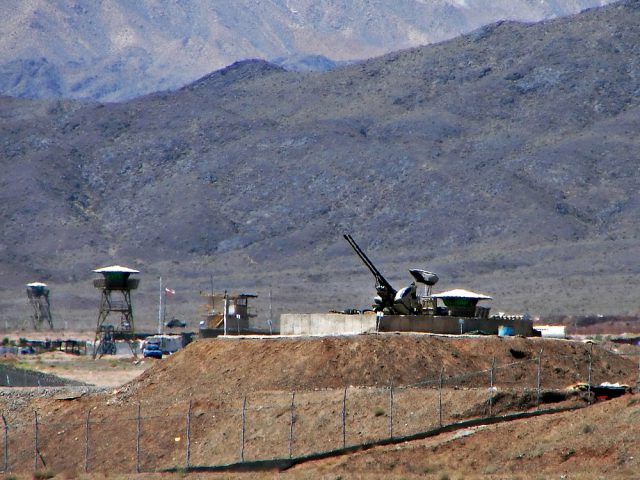
On Friday, President Donald Trump refused to recertify the 2015 Iran nuclear deal. In a
vituperative speech denouncing the
Joint Comprehensive Plan of Action (JCPOA), he demanded that the deal be renegotiated to toughen its restrictions and make them permanent, or ‘the agreement will be terminated’. Since renegotiation is almost certain to fail, Trump’s decision is ‘
an act of geopolitical arson’, for six reasons.
First, the JCPOA is a good deal. It mothballed Iran’s bomb-making program by terminating its plutonium production capability, severely curtailing uranium enrichment for weapons purposes and instituting a robust
transparency, verification and consequences regime. All the upfront ‘payments’ came from Iran; sanctions were lifted gradually and could be rapidly restored if Tehran were caught cheating. Over the past few months, more than
75 European and
60 Asia–Pacific former leaders urged the US to stick with the deal that strengthened global non-proliferation norms.
Second,
the deal is working. Thus John Kerry: ‘When I first met with Iran’s foreign minister in September 2013, Iran had mastered the nuclear fuel cycle, had built a uranium stockpile that could be enriched to make 10 to 12 bombs, and was enriching just below weapons-grade.’ The generals around Trump, known Iran hawks, argue the deal is in the US national interest and Iran is complying with it, as
the IAEA has repeatedly certified.
Third, it is a multilateral deal negotiated by the P5 (China, France, Russia, the UK and the US) plus Germany and unanimously endorsed in
UN Security Council Resolution 2231. In a
joint statement after Trump’s speech, the leaders of France, Germany and the UK reiterated that the deal ‘is in our shared national security interest’ and that they ‘stand committed’ to it. The
EU insisted that no single country can terminate a ‘working’ deal and
Russia repeated its commitment to the deal.
The Elders went so far as to
deplore decertification as a threat to peace. Iran’s
president Hassan Rouhani said the US stands ‘more isolated than ever’.
Fourth, the notion of better terms is fanciful. In 2003, Iran was neither spinning centrifuges nor enriching uranium. Over the following decade, despite US, UN and EU sanctions, assassination of nuclear scientists and cyberattacks on nuclear facilities, Iran’s centrifuges increased from 164 to 19,000, the stockpile of low-enriched uranium grew from 100 kilograms to over 8,000, and uranium enrichment increased from 5% to just below 20%.
Fifth, there are no upsides to the decision. No other country wants to go back to playing nuclear chicken with Iran when it has already lost. The JCPOA brought a 15-year respite from the threat of an Iranian bomb. The focus in this grace period should be to ensure Tehran’s full implementation and to change its incentive structure against nuclear weaponisation.
Finally, there are multiple downsides to the agreement’s unravelling. Diplomacy rests on compromise, pragmatism and mutual accommodation. The JCPOA gives political cover to the moderates in Iran. An Iran re-engaged with the international community will reinvigorate a growing middle class and could give ballast to moderation and stability in Iran and the Middle East.
A cornered Iran will have little left to lose. The main criticism of the JCPOA is that it leaves Iran free to resume the weapons path a decade from now. With the JCPOA wrecked by US unilateralism, Iran would be
free to begin weaponisation immediately and could ‘
produce its first nuclear weapon in just months’. The US choice would then narrow to either accepting Iran as the world’s 10th nuclear-armed state or launching another major war in the Middle East.
Imagine if today Kim Jong-un put on the table a package that halted his nuclear program and scaled it down to Iran’s level under the JCPOA. The world would breathe a collective sigh of relief. If in two years’ time the IAEA reported that Kim was faithfully implementing the deal, the world would celebrate.
The IAEA is the international community’s nuclear watchdog. For the US to destroy the agreement despite the IAEA’s certification of Iran’s compliance would deal a potentially fatal blow to the integrity of the IAEA-based nuclear monitoring and verification system.
Iran’s foreign minister, Javad Zarif, accuses Washington of being ‘
addicted to sanctions … they have an obsession’. With tensions once again rising in the Middle East amid the wreckage of the JCPOA, world attention would be distracted from North Korea as the most pressing nuclear challenge. The US, which is already fighting
at least seven wars around the world in ‘autopilot’ mode, could find itself drawn into two new and challenging wars. The Republican chairman of the Senate Foreign Relations Committee, Bob Corker, warns that Trump could put the US ‘
on the path to World War Three’.
As acknowledged by General Joseph Dunford, chairman of the Joint Chiefs of Staff, international faith in striking deals with the US would be broken. Moscow, Beijing and Pyongyang would hesitate to enter into discussions for a negotiated diplomatic resolution of the Korean nuclear crisis. With proof that the US can’t be trusted and is fixated on forcible regime change, Kim would double down on his nuclear and missile programs. The distraction from North Korea could prove especially costly because of the ‘
pattern of comments that indicate a preference for a military response to North Korea’.
Congress has 60 days to decide whether to reimpose sanctions. Should it do so, there will be another 30-day cooling-off period before the deal collapses. The
period will be used by Europeans to lobby Congress. The best outcome now would be a deal with Congress that Secretary of State
Rex Tillerson and colleagues have been exploring: instead of reimposing sanctions, Congress rescinds the law requiring a presidential recertification every 90 days. That would preserve the status quo and all other parties, including Iran, could continue to abide by the JCPOA.
[21] pattern of comments that indicate a preference for a military response to North Korea: https://www.theatlantic.com/politics/archive/2017/10/trump-north-korea-tillerson/542481/
 Print This Post
Print This Post